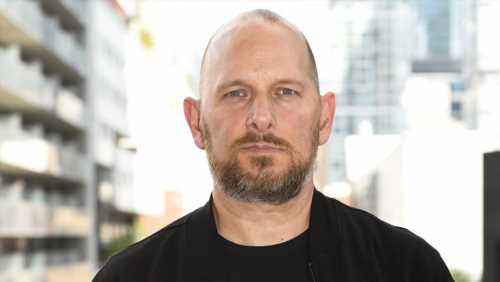The son of Canadian country dance instructors “Sheriff Norm” and “Down the Line Sue,” in a way, MNRK Music Group president-CEO Chris Taylor was destined to become one of the most legendary executives in the country’s music history. He his start in the early ‘90s as lead singer for the reggae-ska-funk band One, which signed with Virgin Records while he was still in law school.
Opting for the latter as a career, Taylor opened his Toronto-based law firm in ’97 and went on to represent some of the country’s top acts — from Drake and Avril Lavigne to Nelly Furtado and Sum 41 — and launched the influential Last Gang indie label (Metric, Death from Above 1979, Mother Mother, Crystal Castles and more). When he sold the label to Entertainment One in 2016, he also shuttered his legal practice to head the eOne Music Group, which was rebranded MNRK Music Group after parent company Hasbro sold the company to Blackstone in 2021 for a reported $385 million.
MNRK’s four-pronged approach includes recorded music (Dualtone Records’ the Lumineers are the biggest act, along with Arkells, Pop Evil, Chromeo and Powfu), a music publishing company, a management firm for artists and producer/writers (including Diana Gordon and recently added seven-time Grammy winner Daniel Lanois), and a synch/licensing music department. With main offices in Los Angeles, MNRK recently expanded by hiring New York-based manager and publicity/marketing vet Keith Hagan as VP (Afghan Whigs, Robert Finley, Cymande, the Whitmore Sisters) and added London-based manager Phil Jones (Waterbaby, Yumi Zouma).
Blackstone owns a little bit of everything, but you still try to position MNRK as an indie, boutique sensibility.
It is a balance between being focused and hands-on, but also having the scale and backing to the extent you want to grow for your clients’ benefit. As artists have assumed more of the power and resources, it doesn’t necessarily mean they don’t need help, and that’s where we come in. You need to have a plan, walk people through it, get them to buy in. We’ve been here [at Blackstone] two years now, so we’ve gotten to know each other: the rhythms of the business, the personalities involved. I think we’re hitting our stride now.
Coming out of the pandemic, your management expansion indicates you’re bullish on the live concert industry.
I’ve always seen management as a prime opportunity for us. What precipitated Hasbro’s sale of eOne’s music business in the first place was Covid. We did shrink that part of the business through the acquisition process, so now we’re just building it back up.
Your experience as an artist must come in handy as a music industry lawyer and now label executive.
I was the guy in the band who took down phone numbers, met with the managers and agents. I empathize with the mentality, the desire, the passion. If you grow up wanting to get your music out to the world and make it a career, it’s a burning desire. I live vicariously through those artists helping them realize their dreams.
How did you get involved with Drake?
He came to me through friends of friends. I think he had finished with “Degrassi High” at that point, maybe 2007. I knew he was really charming and talented, but no one could have predicted he’d become the biggest streaming recording artist on the planet for the last decade. 40, his producer [Noah James Shebib] brought him to me. There was a time when I was the lawyer for every rap artist in Canada. Until I met Drake and the Weeknd, I would shop Canadian rappers monthly in New York and got nowhere. I still have relationships with people in his camp, but I haven’t been involved in his career since I took this job.
When Hasbro owned eOne, the Death Row catalog – since sold to Snoop Dogg – was part of the company. Seemed like an odd fit!
Death Row was being distributed by eOne when I got there. The people who had bought it out of bankruptcy made that distribution deal before they went bankrupt themselves, which was when eOne bought it outright. Snoop bought it about a year ago. There were discussions about Hasbro doing action figures, but it never really came to fruition before Covid hit and then it was sold.
What’s your take on the future of the recorded music industry? Is MNRK’s multi-tiered “one-stop shop” the model moving forward?
The larger companies are signing thousands of artists. We’re a lot more selective and focused on profitability for every artist we bring into the company. We’re in a unique place in the middle between the big guys at the top and the self-distributors like the DistroKids of the world. There aren’t a great many companies that sit in our strata. We’re a self-distributed music company, well-resourced and focused. We believe in everything we sign very strongly. There’s plenty here for our clients to take advantage of in a collaborative sense for their career growth.
Read More About:
Source: Read Full Article
